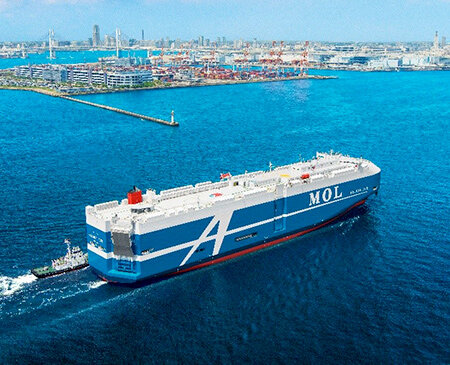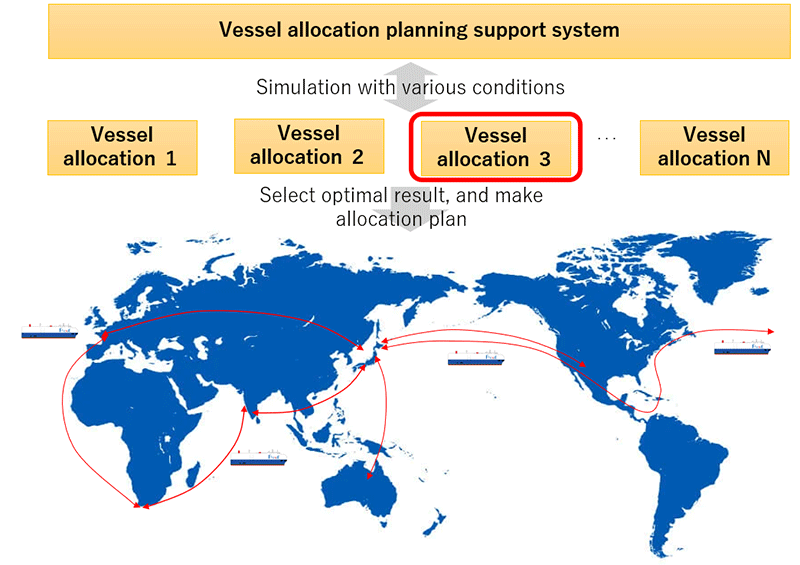- JP
- EN
MOL accelerates Digital Transformation by introducing Support System for Car Carrier Allocation Planning
May 28, 2021

TOKYO-Mitsui O.S.K. Lines, Ltd. (MOL; President & CEO: Takeshi Hashimoto; Headquarters: Minato-ku, Tokyo) today announced that MOL and its group company MOL Information Systems, Ltd. (President: Tsuyoshi Yoshida; Headquarters: Minato-ku, Tokyo) have started operation of support system for car carrier allocation planning that relies on mathematical optimization (Note 1) that is an underlying technology of artificial intelligence (AI).
MOL operates one of world's car carrier fleets, with about 100 vessels. Ocean transport routes connecting automobile manufacturing plants and markets around the globe are diverse, and it is critical to keep the entire fleet operating at peak efficiency to meet the needs of customers worldwide. That means the MOL Group needs to simulate transport routes per vessel several months ahead of time, and to achieve optimal, fleetwide solutions from theoretically millions of possible combinations involving all of its vessels.
In cooperation with Professor Shunji Umetani (Note 2) of Osaka University, MOL developed an algorithm (Note 3) that elicits the optimal allocation plan from an enormous number of combinations using mathematical optimization, and started operation of a system based on the algorithm. Introduction of the system enables speedy decision making and greater flexibility in meeting changes in transport demand. In addition, improvement of fleet-wide efficiency reduces fuel consumption per unit transported, reducing the environmental impact of fleet operation.
The MOL Group continually improves transport service quality by advancing Digital Transformation (DX) in a proactive manner, with the aim of becoming the customers' first choice as a logistics business partner.
(Note 1) Mathematical optimization
An underlying technology of artificial intelligence (AI) and a method for decision-making and problem-solving. Mathematical optimization finds an answer that minimizes (or maximizes) objective functions under given constraints and conditions. It is used in a broad range of areas such as investment management, logistics and supply chain management, energy management, and scheduling.
(Note 2) Shunji Umetani, Endowed Chair Professor in the Graduate School of Information Science and Technology
Acquired Ph. D (Informatics), Department of Applied Mathematics and Physics, Graduate School of Informatics, Kyoto University in 2003, and from 2008 belonged to Graduate School of Information Science and Technology, Osaka University and currently served as Endowed Chair Professor.
His focus is on combinatorial optimization. He is engaged in development of algorithms that efficiently find practical solutions for problems of large-scale and diversified combination based on large-scale data collected from the real world. He is also actively working to develop real applications using mathematical optimization through industry-academia collaboration.
(Note 3) Please refer to September 30, 2019 press release:
MOL Group Successfully Develops Car Carrier Allocation/Loading Plan with Fundamental technologies of AI - Significantly Improving Efficiency in Planning and Validation with 'Mathematical Optimization'
MOL also started development of cargo loading plan support system using mathematical optimization.


